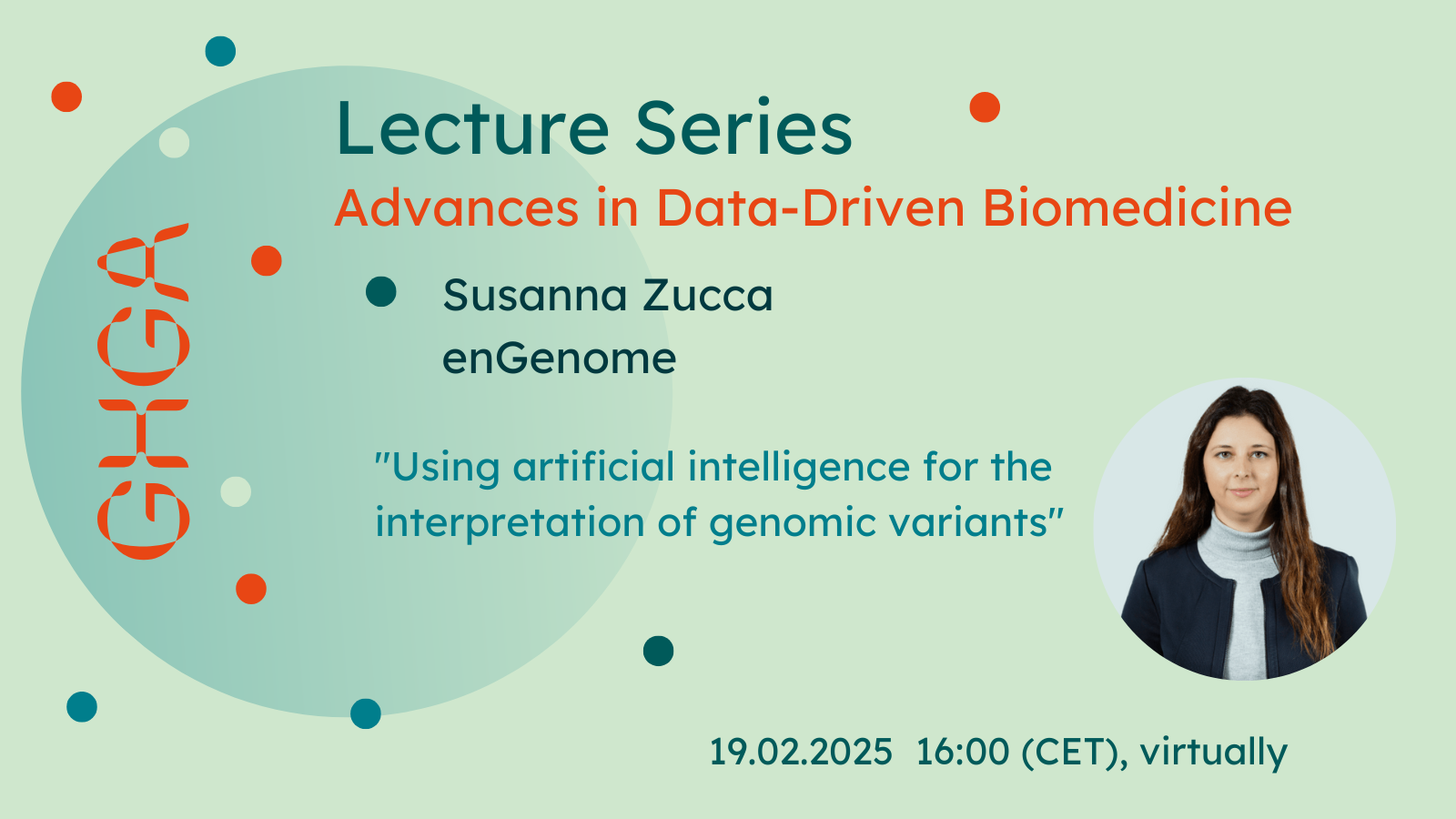GHGA Lecture Series: Susanna Zucca (virtual)
- 19 Feb 2025
Susanna Zucca from enGenome talked about "Using artificial intelligence for the interpretation of genomic variants" at the GHGA lecture series "Advances in Data-Driven Biomedicine" on February 19, 2025.
Watch this talk here!
Biography:
Susanna is a co-founder of enGenome and holds a Master's Degree in Biomedical Engineering, as well as a Ph.D. in Bioengineering and Bioinformatics. She is an expert in genomic data analysis and the development of bioinformatics tools. Currently, she serves as the Chief Science Officer at enGenome SRL, utilizing her extensive academic expertise to spearhead innovative projects and propel scientific progress within the organization. Her current focus is on harnessing generative AI technologies to enhance genomic data analysis.
Abstract:
As personalized medicine continues to advance, the ability to predict how genetic variants affect individual health has become increasingly important. Artificial Intelligence (AI) is playing a pivotal role in this progress by enabling the analysis of vast datasets and uncovering patterns that were previously inaccessible. AI encompasses a variety of methods and algorithms, some of which have been used for decades.
Early applications of AI in genomics focused on simple rule-based systems and machine learning (ML) models designed to assess the pathogenicity of genetic variants. ML-based in silico predictors were among the first AI-driven tools to make a significant impact on genomic prediction. Rule-based systems also emerged during this time, automating the application of variant interpretation guidelines and laying the groundwork for more advanced approaches.
In recent years, deep learning has revolutionized AI applications in genomics, especially in the interpretation of complex genomic data. This has led to the development of advanced variant effect predictors, such as AlphaMissense, SpliceAI, and PrimateAI. Simultaneously, the integration of clinical data into AI frameworks has become crucial in clinical diagnostics, enhancing both the accuracy and efficiency of variant interpretation. Emerging techniques like explainable AI and transfer learning promise to further improve model transparency and reliability, addressing key concerns in the field.
The 2023 rise of generative AI is transforming many disciplines, including genomics. Tools leveraging these methods are now being developed to enhance variant interpretation, proving the potential of this technology to redefine the landscape of genomic analysis.
Looking ahead, the role of AI in genomics is expected to grow, driving advances in precision medicine and becoming a routine part of clinical practice, while aligning with the upcoming regulations in the field, such as the AI Act. These innovations are poised to refine personalized disease risk assessments and treatment outcome predictions.





